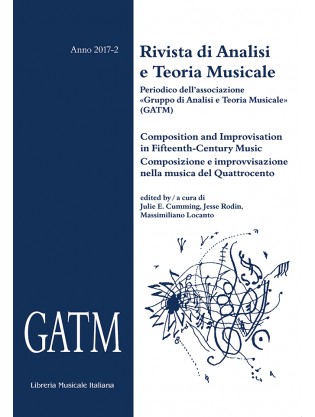 View larger
View larger
Compositional Strategies in the Late Fifteenth Century and Beyond: Observations on the Missa Mente tota of Antoine de Févin
| Author | Alessandra Ignesti |
| Editor | Julie E. Cumming, Jesse Rodin, Massimiliano Locanto |
| Series | Rivista di Analisi e Teoria Musicale |
| Size | 17×24, pp. 263 (135-164) |
| Year | 2017 |
| ISBN | 9788870968927 |
The “imitation mass” (Missa ad imitationem) is a polyphonic setting of the Ordinarium Missae which bears a structural relationship to the polyphonic fabric of a pre-existing composition. Such compositional approach began to be adopted systematically during the early decades of the sixteenth century as an alternative to cantus firmus and paraphrase techniques. This paper focuses on the earlier stage of development of this procedure and discusses passages from the Missa Mente tota of Antoine de Févin, a younger contemporary of Josquin and a key figure in the evolution of the genre. The first part discusses how the composer elaborates musical material derived from fifteenth-century improvisable formulas as found in crucial passages of the model; the second one applies the method of modular analysis developed by Peter Schubert to the description of Févin’s treatment of structural borrowings of motivic material. The proposed interpretation elaborates on a parallel between Févin’s compositional choices and rhetorical procedures and argues that the intertextual relationships between Févin’s imitation mass and its model might extend to textual correspondences established by the quotation of musical material.

